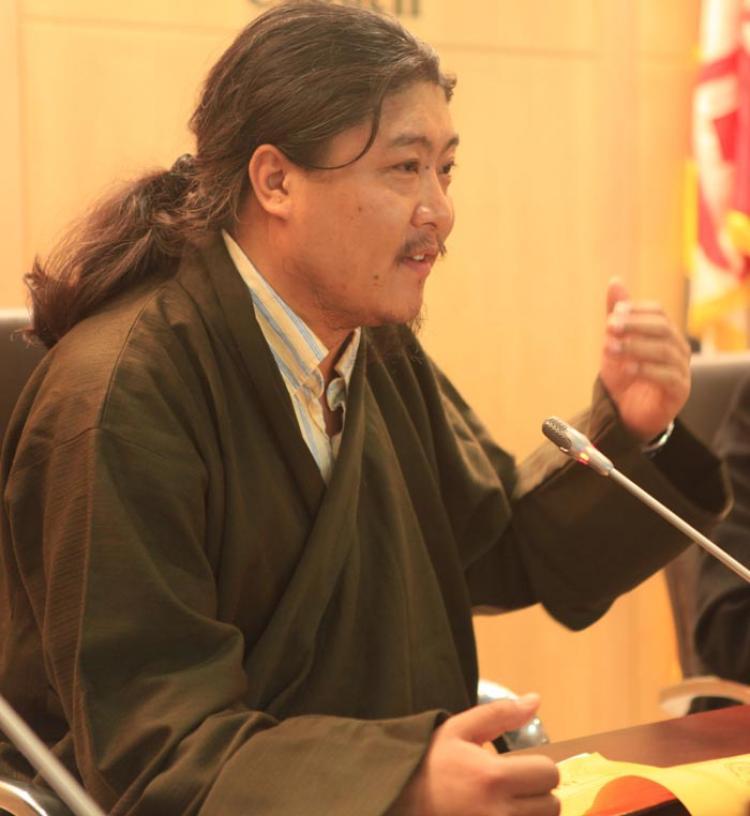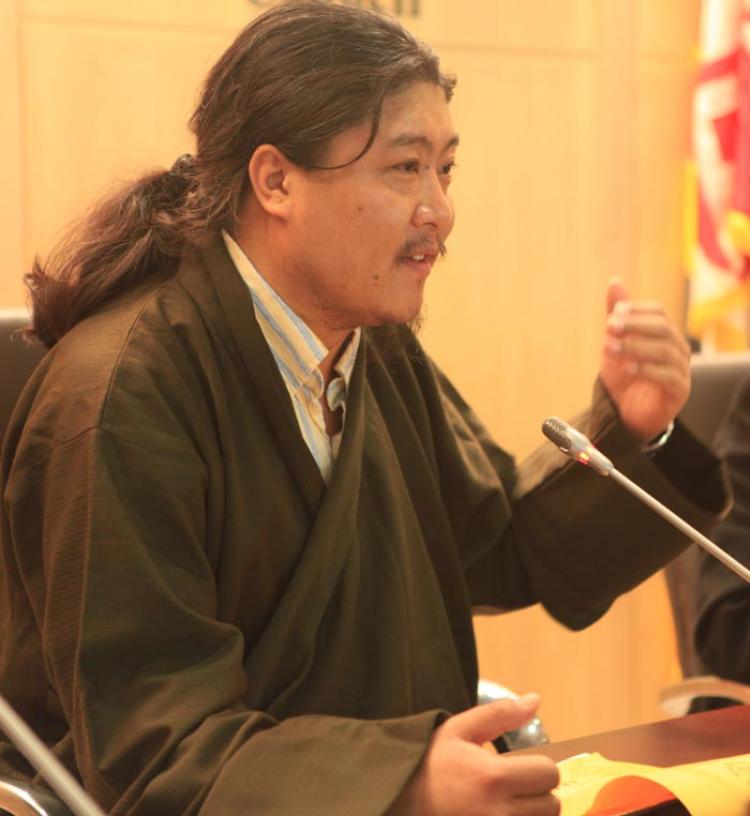Two forums were convened to discuss this serial book, consisting of nine editorials or “commentaries,” which this newspaper, The Epoch Times, published in Nov.–Dec. 2004. The hearing was held in Rockville, Md., a city 21 miles outside of Washington, D.C.
“'The Nine Commentaries’ is a collection of exposes of the crimes done by the Communist Party and reveals its true nature,” said Wei Jingsheng, one of China’s leading dissidents, the “Father” of China’s democracy movement, who spent nearly 18 years in China’s prisons for advocating democracy.
Wei said that even he was not fully aware of the number of crimes by the Chinese Communist Party (CCP), and praised the book for “systematically” revealing this. Victims know that they have been wronged but the Nine Commentaries raises their understanding from individuals being abused (or worse) to the source, the communist system, which is the “root cause.”
The presenters at forum said the Nine Commentaries was helpful to them in illuminating their struggle with the CCP, placing their experiences in a wider context and evoking a higher spiritual awareness. “The Nine Commentaries” is really concerned with “freeing the soul,” said Professor Yanjun Sun, who was a visiting scholar at the University of Hawaii when he publicly quit the CCP in May. He sees the book as clarifying the fact that the Chinese people are not about “violence and revolution,” which is the CP way, but can “overnight” with this book “break away from the shackles of the CCP, and peacefully transition to a better society.”
Karma Namgyal, general secretary of U.S. Tibetan Dhokham Chushi Gangdruk, said watching the video version of the Nine Commentaries reminded him of how his father used to tell him stories about the true nature of the communists. “If [the communists] come all the way to Tibet, they will destroy the people, will destroy the culture, and kill the people, the land, the environment, etcetera,” said Namgyal quoting his father. Back then in the 1950s, they didn’t have the Nine Commentaries but “[the Nine Commentaries] was the collective consciousness of the Tibetan people,” he said.
Quitting the Communist Party Movement
A major consequence of the Nine Commentaries has been the Quitting the Chinese Communist Party (CCP) movement, which was born soon after. Its effect has been that at the time of this article, 64 million people—primarily mainland Chinese—have renounced the CCP or one its affiliated organizations, the Young Pioneers and the Communist Youth League.
Ms. Ting Shen, representing the Chinese League of Victims, described the thinking of the people she helps in getting their property back which was taken away by corrupt CCP officials. Her organization defends property owners who face being forcibly evicted and having their homes demolished to make way for the Expo 2010 in Shanghai. “Even if they get their property back, they know they can lose it overnight,” said Shen. These people, she said, “want not only their property returned, but to see an end to the CCP.”
‘Party Appears Strong, But is Very Weak’
Professor Sen Nieh, host to these forums and President of the Epoch Times-Washington D.C., pointed out that while each Chinese who quits the Party is doing it from the heart, the CCP is always trying to inflate its numbers, and includes fake numbers. This is their way of responding to the Nine Commentaries and Quitting the CCP movement.
New Tang Dynasty Television commentator Tianliang Zhang, professor, George Mason University, provided some evidence on how the Chinese people’s minds have changed after 2004, when the Nine Commentaries was published. In 1989, “students kneeled down in front of the People’s Hall, beseeching the Party leaders to come out and talk to them,” during the Tiananmen Square protests, which became a massacre. At that time, the students did not want to discard the Communist Party in their hearts. Zhang contrasts that response to when, last June, in a small county, some people burned a police building. More than ninety percent of the comments on the Internet applauded this action. “People are tired of the CCP and now want to discard it,” concluded Zhang.Lisa Tao, director of the Global Service Center for Quitting the CCP in Washington, said that recently 73 CCP members quit in response to calls made here to China. She said the DVD of the “Nine Commentaries” is sold on the black market for RMB15 (approx. US$2.00) in Shanghai and some cities in Sichuan province.
Bin He, commentator for New Tang Dynasty Television, said that after being in power for 60 years, it would be reasonable to ask why the CCP can’t give some control and freedom to the people. “But the CCP knows it is very weak. It only looks strong from the outside. It knows its number one enemy is the people, so it doesn’t lose control of the people.”
‘Problem is Not Chinese People, But the CCP’
The Chinese are not the only nation that has been subjected to the authoritarian rule of communist dictatorship. Tibet, Laos, Cambodia, North Korea, and Vietnam have suffered, too, and most of these Asian countries were represented at these two forums. The Tibetans have been under CCP rule for 51 years and have also experienced 1.2 million that have been killed, placed in re-education through labor (RTL) camps, and sent to psychiatric hospitals, according to Jingmei Liangjia, from the Tibetan Communities in the Capital Area.
He came to the realization that the Chinese are not against the Nine Commentaries, but only the Communists are. His compatriot, Mr. Namgyal, said “We have to differentiate between the Chinese and the communists.”
“When the Nine Commentaries came out, people realized that there were millions suffering the same way. The Chinese people on the mainland suffering the same way as the Tibetans, Laotians, Cambodians, and Vietnamese. We are all victims. So, we realize, it’s not the Chinese people, it’s the Communist Party that is the problem,” said Genie Nguyen, chair and founder of Voice of Vietnamese Americans.





